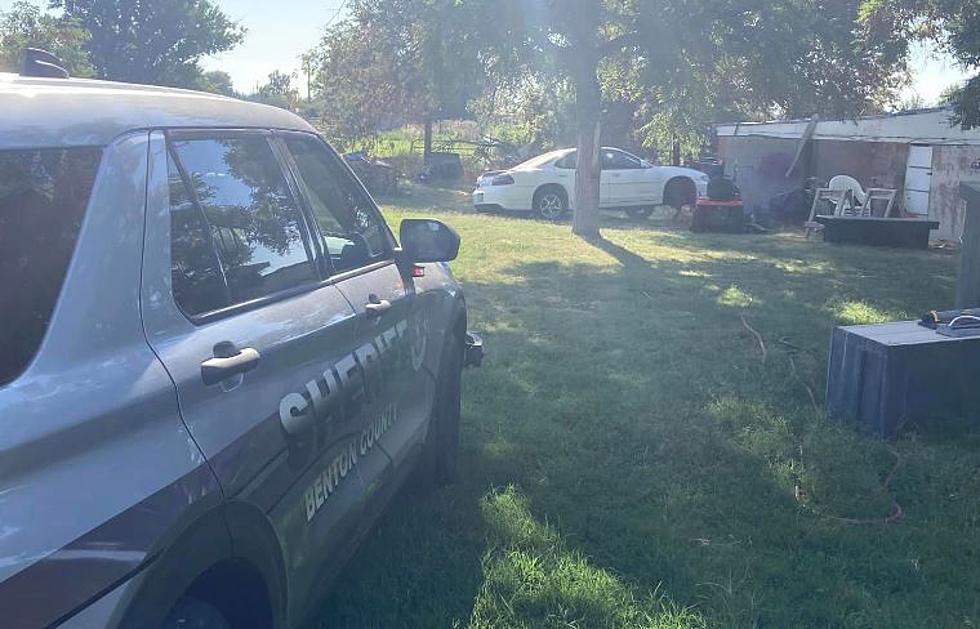
Kurt Busch Suspension Raises Questions of NASCAR Double-Standard
The events that occurred prior to the Daytona 500 offer serious credibility to the argument that NASCAR is one of the worst when is comes to leadership and decision making.
A writer by the name of Amy Henderson penned a brilliant article for the racing website frontstretch.com, February 21st, the day before NASCAR's version of the Super Bowl - The Daytona 500.
Since the death of Bill France Sr, NASCAR's founder, the sports governing body has shown it has about as much spine as a wind chime in a tornado. His son, Brian France Jr. took over for his father as CEO of the sport in 2003, and the latest in a series of questionable decisions has now deprived the sport of two of it's most marquee, if polarizing, drivers. Besides the confusing numerous changes to the points system, the unpopular "post-season" Chase playoff, and car technology and standards, here come two more bad decisions.
Henderson notes over the last decade the sport has long been known for either dragging it's feet on certain issues, and knee-jerk reactions on others. After the death of Dale Earnhardt Sr. and several other drivers, NASCAR finally installed what are called soft walls at all it's circuit tracks. These energy absorbing walls cushion the blow of a driver hitting at speeds as high as 200 mph, and have saved many from serious injury.
But despite pleas from drivers, a number of tracks still have unprotected areas because NASCAR (and France Jr.) felt few cars would ever hit these spots. Last Saturday in the Xfinity (formerly Nationwide and Busch) series race, Kyle Busch hit one of these unprotected concrete walls at 150 mph and suffered a compound fracture of his right leg and fractured left ankle. Earliest return for him is projected to be at least 2-3 months. In typical fashion, NASCAR announced starting the Monday after the race, softwalls will be placed in all unprotected areas.
But the biggest, latest mistake by NASCAR has been the summary judgement suspension of driver Kurt Busch, Kyle's older brother. Long story short, there's been an ongoing court battle between Busch and his former girlfriend, Patricia Driscoll. A Delaware family court judge ruled it was "likely" Busch had shoved her against a wall, committing domestic violence during an incident last fall. However, no charges - criminal or otherwise - have been filed against him - just a restraining order. But NASCAR Executive Vice President of Racing Operations, Steve O'Donnell, suspended him indefinitely.
NASCAR, or any sport, has no place for documented, proven domestic violence. But to suspend Busch without any legal precedent is wrong, especially since just 13 months ago another driver was involved in a similar situation and NASCAR did nothing. Henderson writes:
"... You have to wonder if they’d have reacted to the (Busch) restraining order the same way a year ago, before domestic violence came to light in other sports, before the NFL and NBA issued some well-publicized sanctions against players brought up on domestic violence charges.
Well, actually, you don’t have to wonder at all. In January 2014, then-Sprint Cup driver Travis Kvapil pleaded guilty to charges of domestic violence following a 2013 incident. That’s right…Kvapil pleaded guilty in a court of law to charges brought against him. NASCAR’s reaction in January 2014? Nothing. Not a single race suspension, not even a month of super-secret double probation. Nothing. The whole thing was allowed to slide silently by like so much muddy water under the bridge."
Henderson goes on to say Kvapil (pronounced "Kwaw-ful") was not an important or high profile enough driver to make an example of:
"... Kvapil stayed in the car because he wasn’t important enough to use as an example. Busch, with his history of misbehavior, was the perfect poster boy."
As yet another sign of NASCAR's spineless leadership, Busch's former girlfriend, Driscoll, was - in better times for them - heavily involved in getting the Armed Forces Foundation charity imbedded in the sport's culture; making sure it received financial and publicity support from NASCAR. NASCAR VP O'Donnell previously served on the Board of Directors for that charity.
Henderson suggests this clouds NASCAR's credibility in this issue:
"...It raises the question of how NASCAR would have reacted if the driver involved hadn’t been accused by someone with close ties to NASCAR’s front office. You’d like to hope that didn’t play a role, but it’s hard to say without question that it did not."
Either way, NASCAR now stands to possibly lose another big chunk of it's dedicated core audience. They're fans who know the difference between right and wrong, between what's acceptable, and what's not (domestic violence). But they also know when the sport they love keeps making questionable and even stupid decisions that affect the product they see every weekend.
NASCAR track attendance is down an average of at least 15% across the series over the last decade, and outside of Daytona, TV ratings have slumped well below the glory days of the 1990's and very early 2000's. France Jr. and company had better start showing some smart, reasonable leadership, or in another decade, the sport will become little more than a tape-delayed regional affair that doesn't appeal to former die-hard fans, or flavor-of-the month enthusiasts either.
That's our take.
You can read this entire brilliant article by clicking here.
More From 870 AM KFLD









